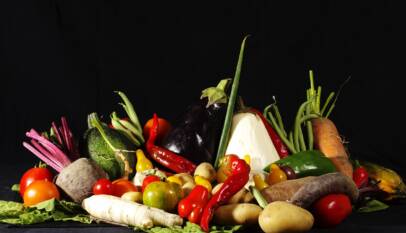Vegetarian Protein Sources for a Balanced Diet
Vegetarian diets can provide an abundance of protein-rich foods crucial for a balanced lifestyle. Exploring diverse vegetarian protein sources allows individuals to meet their nutritional needs without relying on animal products. From legumes to nuts and seeds, there are numerous options to consider.
The rise in vegetarianism has led to an increased awareness of plant-based protein alternatives. People seeking health benefits or ethical choices can find satisfaction in foods like quinoa, lentils, and hemp seeds. Each source offers unique nutritional profiles and culinary possibilities.
Incorporating these alternatives into daily meals enhances not only protein intake but also overall wellness. Various recipes and preparation methods can make these ingredients both delicious and satisfying, proving that vegetarian diets can be rich in flavor and nutrients.
Comprehensive Guide to Plant-Based Proteins
Plant-based proteins offer diverse and nutritious options for individuals seeking alternatives to animal products. This guide highlights key sources, including legumes, nuts, whole grains, and soy products, emphasizing their protein content and health benefits.
Legumes and Beans: A Powerhouse of Protein
Legumes and beans are rich sources of protein and essential nutrients. They include varieties such as lentils, chickpeas, black beans, and kidney beans. These foods provide approximately 15-25 grams of protein per cooked cup.
In addition to protein, legumes are high in fiber, which aids digestion and promotes satiety. They also contain important micronutrients like iron, folate, and magnesium. Incorporating a variety of legumes into meals can enhance nutritional balance and support overall health.
Nuts and Seeds: Nutrient-Dense Protein Options
Nuts and seeds serve as excellent sources of protein while offering healthy fats and essential nutrients. Almonds, walnuts, chia seeds, and hemp seeds are particularly notable, providing 6-10 grams of protein per ounce.
These options are not only protein-rich but also contain antioxidants, vitamins, and minerals. They can be easily added to smoothies, salads, or consumed as snacks. The healthy fats in nuts and seeds also contribute to heart health by reducing inflammation and cholesterol levels.
Whole Grains: More Than Just Fiber
Whole grains such as quinoa, barley, and farro offer more than just fiber. They also pack a solid amount of protein, providing about 5-15 grams of protein per cooked cup, depending on the grain.
In addition to protein, whole grains are rich in B vitamins, iron, and antioxidants. Quinoa, for instance, is a complete protein, meaning it contains all nine essential amino acids. This makes it a staple for those on plant-based diets and contributes to muscle repair and overall wellness.
Soy Products: Versatile and Protein-Rich
Soy products, including tofu, tempeh, and edamame, are versatile and protein-dense choices. Tofu provides about 20 grams of protein per cup, while tempeh contains even more at approximately 30 grams per cup.
These products are not only rich in protein but also contain isoflavones, which have antioxidant properties. Their versatility allows them to be used in various dishes, from stir-fries to smoothies. Regular consumption can contribute significantly to meeting protein requirements in a plant-based diet.
Optimizing Vegetarian Diets for Adequate Protein
Vegetarian diets can provide sufficient protein when planned correctly. Understanding protein combinations, knowing when to use supplements, and recognizing individual needs are essential strategies.
Combining Proteins: Ensuring a Complete Amino Acid Profile
Vegetarians must be mindful of amino acid profiles. Most plant proteins are considered incomplete, lacking one or more essential amino acids. By combining different protein sources, such as legumes and grains, one can achieve a complete amino acid profile.
Examples include pairing beans with rice or hummus with whole-grain pita. These combinations ensure that all essential amino acids are available. Including a variety of protein sources such as nuts, seeds, and dairy (for lacto-vegetarians) can enhance protein quality throughout the day.
Protein Supplements: When and How to Use Them
Protein supplements can be beneficial for vegetarians, especially those engaged in regular physical activity or aiming for muscle gain. Options include plant-based protein powders like pea, rice, or hemp protein. These can be convenient solutions to boost intake.
It is important to read labels carefully to ensure the product provides adequate protein without unnecessary additives. Supplements should complement a balanced diet, not replace whole food sources. Using them strategically—after workouts or as snacks—can help meet individual protein needs effectively.
Daily Protein Requirements: Tailoring Intake to Individual Needs
Protein requirements vary depending on factors such as age, activity level, and health goals. Generally, adults require about 0.8 grams of protein per kilogram of body weight. Active individuals may need 1.2 to 2.0 grams per kilogram to support muscle maintenance and recovery.
Tracking protein intake through food diaries or apps can help in understanding personal needs. Additionally, consulting with a nutritionist can provide tailored guidance, ensuring that vegetarians meet their specific macronutrient goals efficiently.
Vaishno Devi Helicopter Booking: Your Complete Guide for a Hassle-Free Pilgrimage
Visiting Vaishno Devi is a spiritual journey that attracts millions of pilgrims each year.…














